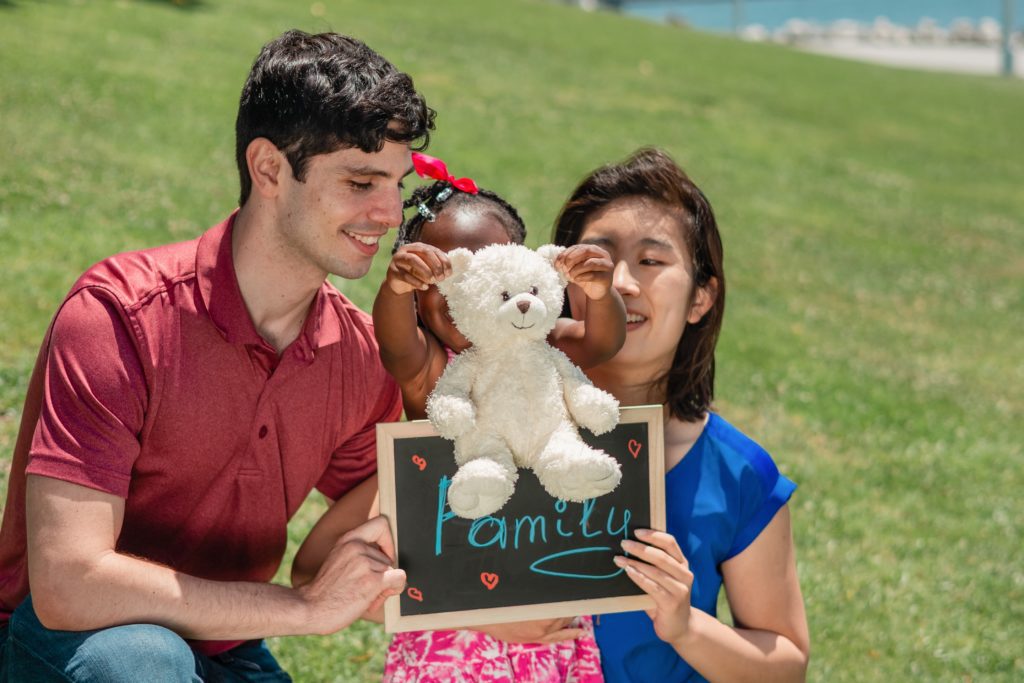If you have adopted children, you probably want to ensure they are protected financially, even if you get a divorce from your new beau. But how can you make sure they are protected through your prenup? There are several ways you can protect children (biological or adopted) through your prenup, which we will discuss in this article.
What is a Prenuptial Agreement?
A prenuptial agreement is a legal contract that a couple signs before getting married. This contract outlines how the couple’s assets will be divided in case of a divorce or separation. It is also an emotional document of sorts because it sets boundaries and expectations and facilitates in-depth communication between the soon-to-be spouses. This can include topics around adopted children, as well.
Prenup Contract Language
Most attorneys and prenups will mention the phrase “adopted or biological” when referring to children in a prenup. It may be a good idea to include the term “adopted” before “children” anytime your prenup references children. This can offer an extra level of clarity if that issue is ever contested in the future.
Can You Add Child Custody And Child Support Into Your Prenup?
In most states, no, you cannot add child custody and child support clauses into your prenup. That is because courts do not want parents to decide the fate of their children years before a potential divorce happens. Not to mention, there are laws in place to protect a child’s best interest, and what two parents may believe is a child’s best interest may not actually be the best interest in every situation.
However, in New York, there is an exception to this rule where in narrow cases, you may include these clauses.
How to Include Adopted Children in a Prenup?
There are several mechanisms that you can utilize in creating a prenup that will ultimately provide protection to your adopted children. These include keeping assets, inheritances, and businesses separate, adding a death clause and a primary residence clause, and including alimony if children are adopted. Let’s dig a little deeper into these different clauses:
Keeping Assets Separate
The first thing you can do to protect children (adopted or biological) is to keep assets separate. Why? Well, if you get a divorce and lose out on 50%, 60%, 70%, or more of your assets, you have less money for your kids. Whether your kids are minors or adults, you want to be able to financially support them or at least have money for them to inherit after you pass away.
Keeping Your Inheritance(s) Separate
Speaking of inheritances, if YOU are set to receive money from a family or friend in the future, you may want to keep it separate to make sure it stays in the family. That means ensuring your inheritance doesn’t get split up in a divorce and making sure 100% of the inheritance stays with you, so you can one day pass it on to your adopted children.
Keeping Your Business(es) Separate
Similarly, you may want to consider keeping your business(es) separate. If you are part of or own a business and want to keep it in the family, making sure your prenup keeps that separate is important. Maybe you want your adopted children to take over one day and take your spot as CEO. If that’s the case, make sure to add a clause keeping all current and future business interests separate in a divorce.
Death Clause
A death clause in a prenup can be a supplemental way (in addition to a will) to make sure your assets are distributed how you want them to be in your death. A death clause can be drafted in different ways, but generally, it’s a way to make sure your separate assets are distributed to the beneficiary of your will and ensure your spouse does not take your separate assets when you die. For example, let’s say you have a death clause in your prenup. You also have a will that states your adopted children are your only beneficiaries. In your death, your separate assets will NOT go to your spouse but instead to your adopted children.
Alimony If Adopted Children Are Had
Maybe you don’t have adopted children now, but you plan to adopt in the future. If that’s the case, you may want to talk to your future spouse about alimony, especially if one spouse will stay home with the kids. You can make sure that you are financially supported if you adopt children. For example, you could have your prenup say that you waive your right to alimony UNLESS you adopt children (or have biological children). How does this protect the children? It ensures that in the event of a divorce, their main caretaker is financially supported.
Primary Residence Clause
A primary residence clause basically says that one spouse will get to remain in the marital home for a set period of time after the marriage ends. This doesn’t mean that person gets to KEEP the house; it simply allows them to live there for a while to get back on their feet after the divorce. This can be especially helpful for stay-at-home parents or the main caregiver of the adopted children to be able to stay in the home during and after the divorce for some time.
This also helps ease the transition from marriage to divorce for the children. If everything is changing, including their home, it can be a really difficult transition for minor children to adapt to. Allowing the primary caregiver to stay in the primary residence for some time helps ease this transition.

Frequently Asked Questions (FAQs) about including adopted children in a prenup
Q: Is it necessary to include adopted children in a prenup?
A: It is not necessary, of course, but may be beneficial if you want to ensure your adopted children are financially protected.
Q: What should be included in a clause addressing adopted children in a prenup?
A: There’s not really an “adopted children” clause, but there are clauses that indirectly affect the children, such as keeping assets separate, including alimony, and making sure assets are passed to the adopted children in case of death.
Q: Can prenups address child custody and support of adopted children?
A: Usually, no. Nearly all states do not allow for prenups to include child custody or support clauses, with the exception of a few states. For example, New York allows you to include provisions for child matters in very narrow circumstances.
Q: Can biological children also be included in a prenup?
A: Of course, yes, biological children can also be included in a prenup in the same exact ways that adopted children are included.
Conclusion
Overall, including adopted children in a prenup is possible through various different mechanisms. Adopted children can be financially protected in the event of your death or divorce through a prenup. Usually, you cannot include provisions about child custody and child support in your prenup.

Nicole Sheehey is the Head of Legal Content at HelloPrenup, and an Illinois licensed attorney. She has a wealth of knowledge and experience when it comes to prenuptial agreements. Nicole has Juris Doctor from John Marshall Law School. She has a deep understanding of the legal and financial implications of prenuptial agreements, and enjoys writing and collaborating with other attorneys on the nuances of the law. Nicole is passionate about helping couples locate the information they need when it comes to prenuptial agreements. You can reach Nicole here: [email protected]

0 Comments